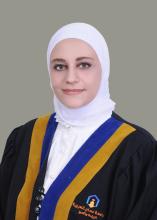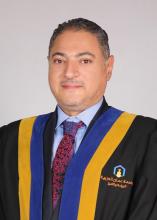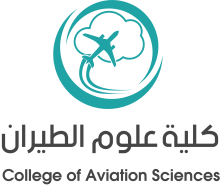The Aircraft Maintenance Department was established in the 2017/2018 academic year. It offers the following unique and pioneering programs:
1. Bachelor's Program in Aircraft Maintenance (B1.1): The first program of its kind in the Arab world to award a bachelor's degree. This 137-credit hour program was launched in the 2017-2018 academic year.
2. Bachelor's Program in Avionics (B2): A 137-credit hour program that commenced in the 2022-2023 academic year. It stands as the first and only avionics bachelor's specialization in the Arab world.
3. Bachelor's Program in Aviation Management: A newly introduced 132-credit hour program, launched in the 2025-2026 academic year. This is the first program of its kind in the Kingdom.
The Jordanian Higher Education authorities accredit all programs.
Highly qualified faculty members recruited from prestigious universities worldwide staff the department. They possess profound practical, research, and professional expertise in the fields of aircraft maintenance, avionics, and aviation management.
The department's faculty and administration are committed to continuously reviewing and updating curricula and teaching methodologies in compliance with quality assurance standards. We actively foster ongoing relationships with specialized companies and institutions to facilitate applied research and project collaboration. Furthermore, in partnership with the Mideast Aviation Academy (MAA), the department ensures a practical training environment that enhances students' professional and technical competencies. This equips our graduates with the specialized knowledge needed to seamlessly transition into careers within the aviation industry.
The department prioritizes participation in relevant conferences and workshops, which enables us to integrate the latest advancements in aviation sciences into our ongoing curriculum development. We attract a growing number of students from within Jordan and abroad. A key distinction of our department is its focus on preparing students to obtain international aircraft maintenance licenses, such as those from the European Union Aviation Safety Agency (EASA Part-66) and the Jordanian Civil Aviation Regulatory Commission (JCARC).
In line with Amman Arab University's pursuit of international accreditations and licenses for all its specializations, the Faculty of Aviation Sciences has recently achieved a significant milestone: it has been accredited and licensed by EASA as a Part-147 Training Organization and as an examination center for both the Aircraft Maintenance (B1.1) and Avionics (B2) programs. This accomplishment, achieved in collaboration with the Middle East Aviation Academy, follows the full satisfaction of all European accreditation requirements.
Moreover, the Faculty of Aviation Sciences at Amman Arab University has earned accreditation from the Aviation Accreditation Board International (AABI)—the first in the Arab world and the eighth globally—for a five-year term until the end of 2030. This prestigious recognition was awarded after the Faculty successfully met the rigorous quality standards of this renowned, U.S.-based accreditation body, the only one of its kind in the aviation field.
Dr. Ahmad Alhosban
Acting Head of Aircraft Maintenance Department
The Bachelor of Aviation Management program was established in the 2025-2026 academic year as the first program in the Kingdom to offer a
bachelor's degree in this field. This 132-credit hour program is accredited by the Jordanian Higher Education authorities.
The program is delivered by highly qualified faculty members from prestigious international universities, who bring deep practical, research, and professional expertise in aviation management.
Our faculty and administrative staff are dedicated to the continuous review and enhancement of curricula and teaching methods in line with rigorous quality assurance standards. The program also fosters strong, ongoing relationships with industry partners to facilitate applied research and collaborative projects.
Furthermore, the program is committed to providing a robust academic foundation that elevates students' professional and technical competencies. We equip our graduates with the necessary knowledge and skills to seamlessly pursue careers with airlines at local and international airports upon graduation.
Vision
Excellence in the areas of teaching and learning in aircraft maintenance sciences and scientific research locally and regionally.
Mission
Preparing distinguished staff in the field of aircraft maintenance sciences equipped with the knowledge, skills and ethics of the profession, to meet the needs of the local and regional community, in accordance with local and international quality criteria.
Program Mission
To equip students with the in-depth knowledge and practical skills required to manage diverse aviation operations within the global air transport sector.
Program Educational Objectives
The Aviation Management program aims to:
- Develop a comprehensive understanding of the local and international legislative frameworks and regulatory principles that govern aviation management.
- Enhance the ability to analyze and evaluate the operational, financial, and marketing strategies of airlines.
- Enable students to apply Quality Management Systems, Aviation Safety Management Systems, and Risk Management Systems to operational aviation processes.
- Foster proficiency in utilizing modern technological systems—such as Global Distribution Systems (GDS) and Revenue Management Systems—to enhance the efficiency of aviation operations.
- Cultivate the leadership and project management skills necessary for coordinating multidisciplinary aviation operations within aviation organizations.
- Strengthen the capacity to assess contemporary challenges in aviation management and the wider industry and to innovate effective, sustainable solutions.
Program Learning Outcomes
Upon successful completion of the program, the student will be able to:
A. Knowledge
1. Explain the legislative and regulatory principles governing domestic and international aviation operations. 2. Compare different airlines' operational and financial strategies and their impact on competitive advantage.
B. Skills
3. Apply the procedures of Aviation Safety Management Systems (SMS), Quality Management Systems, and Security Management Systems in aviation operations.
4. Analyze Global Distribution Systems (GDS) and Revenue Management Systems to plan and execute operational flight tasks.
C. Competencies
5. Manage teams and operations in complex and dynamic aviation environments.
6. Innovate solutions to challenges in aviation management, considering ethical and social responsibilities.
Program Mission
To equip students with the in-depth knowledge and practical skills required to manage diverse aviation operations within the global air transport sector.
Program Educational Objectives
The Aviation Management program aims to:
- Develop a comprehensive understanding of the local and international legislative frameworks and regulatory principles that govern aviation management.
- Enhance the ability to analyze and evaluate the operational, financial, and marketing strategies of airlines.
- Enable students to apply Quality Management Systems, Aviation Safety Management Systems, and Risk Management Systems to operational aviation processes.
- Foster proficiency in utilizing modern technological systems—such as Global Distribution Systems (GDS) and Revenue Management Systems—to enhance the efficiency of aviation operations.
- Cultivate the leadership and project management skills necessary for coordinating multidisciplinary aviation operations within aviation organizations.
- Strengthen the capacity to assess contemporary challenges in aviation management and the wider industry and to innovate effective, sustainable solutions.
Program Learning Outcomes
Upon successful completion of the program, the student will be able to:
A. Knowledge
1. Explain the legislative and regulatory principles governing domestic and international aviation operations.
2. Compare different airlines' operational and financial strategies and their impact on competitive advantage.
B. Skills
3. Apply the procedures of Aviation Safety Management Systems (SMS), Quality Management Systems, and Security Management Systems in aviation operations.
4. Analyze Global Distribution Systems (GDS) and Revenue Management Systems to plan and execute operational flight tasks.
C. Competencies
5. Manage teams and operations in complex and dynamic aviation environments.
6. Innovate solutions to challenges in aviation management, considering ethical and social responsibilities.
Program Objectives and Learning Outcomes Alignment Matrix:
| Program Learning Outcomes | Program Objectives |
| Explain the legislative and regulatory principles governing domestic and international aviation operations | Develop comprehensive knowledge of the local and international legislative frameworks and regulatory principles governing aviation management. |
| Compare the different operational and financial strategies of airlines and their impact on competitive advantage. | Enhance the ability to analyze and evaluate the operational, financial, and marketing strategies of airlines. |
| Apply the procedures of Aviation Safety Management Systems (SMS), Quality Management Systems, and Security Management Systems in aviation operations. | Enable students to apply Quality Management, Aviation Safety Management, and Risk Management systems to Operational aviation processes. |
| Analyze Global Distribution Systems (GDS) and Revenue Management Systems to plan and execute operational flight tasks. | Develop proficiency in utilizing modern technological systems, such as Global Distribution Systems (GDS) and Revenue Management Systems, to enhance the efficiency of Aviation operations. |
Manage teams and operations in complex and dynamic aviation environments. | Develop the leadership and project management skills necessary for coordinating multidisciplinary aviation operations within aviation organizations. |
| Innovate solutions to aviation management challenges while adhering to ethical and social considerations. | Enhance the ability to assess contemporary challenges in aviation management and the aviation industry, and to innovate effective and sustainable solutions. |










